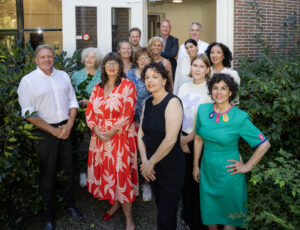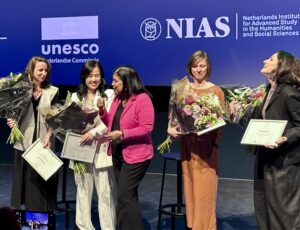In a seminar on 21 November, two presentations will explore the geographies of memory and displacement, raising questions about embodied memory, place and the intergenerational legacies of war and state-perpetrated violence.
About the Seminar
Presentation by Anna-Kaisa Kuusisto-Arponen:
Children and young people, as ambiguously marginal groups in most societies, practice subaltern geopolitics when displaced from home during times of conflict. Their often semi-conscious and unreflective bodily memories of displacement, as well as their attempts to reconstruct the ties and sites of belonging, are only rarely narrated. I analyse how the bodily agencies and emotions involved in childhood displacement are depicted in two children’s picture books: Shirley Hughes’ (2007) fictional book The Lion and the Unicorn, and Veronica Leo’s (1990) semi-autobiographical book Oravan silmät (The Eyes of The Squirrel). Both books tell about a child who becomes an evacuee during the Second World War. In Hughes’ book a boy called Lenny is sent to countryside out of London and Leo’s book a girl (whose name is not revealed) is send from Finland to Sweden.
As these books, as well as recent films such as Mother of Mine (2005), suggest, young people’s ‘emotional silences’ continue to affect the subject’s (re)production as political self even after they return ‘home’.
Presentation by Karen E. Till:
My current book in progress, Wounded Cities, focuses on Bogotá, Cape Town, Berlin, Minneapolis, and Roanoke, cities in which settlement clearances have produced spaces so steeped in oppression that the geographies of displacement continue to structure urban social relations. Yet it is precisely in and through these historic neighborhoods and natural settings that some residents, artists, educators and activists reconsider the meanings of the right to the city through what I describe as a place-based ethics of care. By maintaining, continuing, and repairing places, they create pathways of possibility based upon multiple pasts that offer a different model of belonging and rights, one based on inhabitation and memory-work, rather than on territory, property or blood.
About the Speakers
Anna-Kaisa Kuusisto-Arponen is a politcal geographer from the University of Tampere (Finland), and a Visiting NIAS Fellow, participating in the Terrorscapes Theme Group.
Karen E. Till is a political geographer from the National University of Ireland, and a NIAS Fellow, participating in the Terrorscapes Theme Group.
About NIAS Seminars
NIAS Seminars are organised by the Rector of the Institute. They are meant to appeal to interested parties from a wide range of backgrounds and are aimed to encourage closer contact within the Dutch academic world.
NIAS Seminars take place in the Lecture Room (NIAS, Meijboomlaan 1, Wassenaar, telephone 070-512 27 00). This Seminar starts at 11.00 hours and ends at 12.30. Everyone is welcome to attend the seminar and join the discussion. However, since changes in the programme may occur, please let us know if you wish to attend. For further information, contact Communication.



